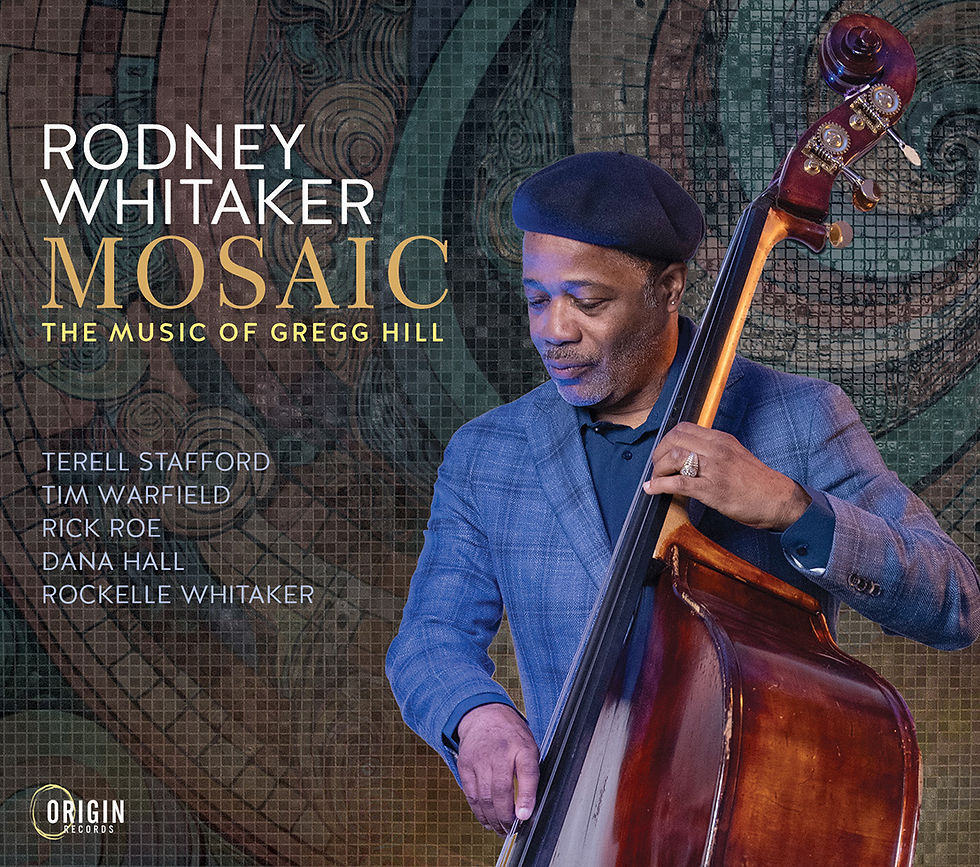
by Thierry De Clemensat
Member at Jazz Journalists Association
USA correspondent for Paris-Move and ABS magazine
Editor in chief – Bayou Blue Radio, Bayou Blue News
May 6, 2025
Admittedly, I felt a flicker of hesitation when this album first landed on my radar. In the past two years, interpretations of Gregg Hill’s compositions have emerged with such relentless frequency that one could be forgiven for wondering whether we were witnessing the onset of creative saturation. Yet, against all odds, this latest release not only distinguishes itself from the crowded field, it quite possibly surpasses all previous efforts. What we encounter here is both one of Hill’s most visionary and majestic compositions to date, and a revelatory interpretation by a group of artists who manage to inhabit the work so completely that it feels newly born.
Their reading is nothing short of exhilarating, both modern in outlook and deeply resonant.
To pull off such a feat demands musicians of rare caliber, and in this instance, the ensemble that rises to the occasion may come as a surprise. The Dave Sharp WORLDS Quartet, known for its eclectic synthesis of jazz and global traditions, might not have been the obvious choice for an undertaking rooted in contemporary American jazz composition. And yet, it is precisely this unexpected pairing that yields a project of such striking originality. Drawing from a palette rich in jazz, world music, and classical nuance, the group delivers a work of remarkable depth and vitality, a genuine delight for the senses.
"Catalyst" is composer Gregg Hill's latest 2025 album release, celebrating world music and featuring the Dave Sharp Worlds Quartet & Elden Kelly.
The Dave Sharp Worlds Quartet is composed of exceptional artists, including, Dave Sharp (bass), Hendrik Karaptyan (Violin), Igor Houwat (Oud), Mike List (percussion). This year marks a decade of their work together as one of the most intriguing world music groups on the scene today. Catalyst is a collaboration with the master of the fretless guitar, Elden Kelly where together, the album serves as a cinematic celebration of the collaboration between these talented artists and composer Gregg Hill.
1. Traveling with Gregg 7:38
2. Rue de Royal 7:05
3. 13th Century Lion 5:19
4. Ducks Night Out 6:21
5. Catalyst 7:53
6. Cidade 6:58
7. Savana 8:53
8. The Stray Moonduck 8:51
The album is available now at our store and will be available through all major music outlets May 1, 2025.
- Feb 27, 2025

Paris Move Review by Thierry De Clemensat
USA correspondent – Paris-Move and ABS magazine
Editor in chief Bayou Blue Radio, Bayou Blue News
"Gregg Hill continues to inspire thousands of musicians, and this time, the illustrious Rodney Whitaker takes up the mantle, offering us an album of remarkable enthusiasm. Deeply connected to Origin Records—a label that has become something of a home for him—Whitaker’s impressive array of musical endeavors is too vast to fully explore here. For those yet unfamiliar with his work, it is worth noting that he was a member of the renowned Jazz at Lincoln Center Orchestra and has collaborated with an extraordinary roster of artists..."
..."Hill’s compositions undergo a metamorphosis in the hands of each artist who embraces them, as is the case here with this extraordinary bassist. Whitaker accomplishes the feat of adapting Hill’s work to his own artistic realm with a refinement that commands admiration. Recently inducted into the American Academy of Arts and Sciences in recognition of his prolific career as both a bassist and a distinguished jazz educator, Whitaker continues to affirm his role as a consummate interpreter of original music. This latest release, Mosaic, marks the fourth collaboration between Whitaker and Hill. With his dynamic ensemble—including vocalist Rockelle Whitaker, trumpeter Terell Stafford, saxophonist Tim Warfield, pianist Rick Roe, and drummer Dana Hall—Whitaker infuses Hill’s fresh and singular compositions with searing interplay, profound swing, masterful choices, and a forward-thinking spirit of adventure.
One cannot know every voice in jazz, and here I discovered the exquisite timbre of Rockelle Whitaker—a true jazz diva whose classical refinement erupts into an ultramodern approach to vocal phrasing, executed with understated elegance. A delight for all lovers of fine voices. Throughout this album, Rodney Whitaker once again demonstrates his impeccable command of musical arrangements. Each piece is masterfully highlighted, with an astute and intelligent handling of the instrumentation, subtly delivering a work that proves to be even more intellectually profound than Hill’s original intent.
Yet, beyond the beauty of its arrangements, this album offers something even more compelling—the sheer pleasure of hearing a bassist who so clearly delights in drawing the most perfect tones from his instrument. It is this very quality that has long made me admire Whitaker, and here, in the setting of Hill’s compositions, his artistry takes on an even greater depth. For the most significant jazz musicians, their craft is nothing less than a form of literary expression. This is precisely the case here, which is why we unreservedly place Mosaic atop our list of “Indispensables.”


















































